International Women’s Day was a busy time for protests in London, though I think none of them got in the news, where there seems to be a consensus that only middle class women’s issues matter on that day.
International Women’s Day began in New York in 1909, when the Socialist Party of America organised a National Women’s Day there on Feb 28th, and the following year it was adopted as an international celebration by the 1910 International Socialist Woman’s Conference.
In 1914 the date became standardised as March 8th, and in London the Suffragettes marched, with Sylvia Pankhurst being arrested on her way to speak at the rally in Trafalgar Square. And on March 8th 1914 in Russia (for them it was still Feb 23rd) it was the actions by women in cities including Petrograd and St Petersbury that began the Russian Revolution against the Czar – and a week later he abdicated and women were given the vote by the provisional government.
It was only the the 1970s, that the UN took up the day, and in 1977 it was adopted as the UN Day for women’s rights and world peace. Though we seem to have rather given up on world peace.
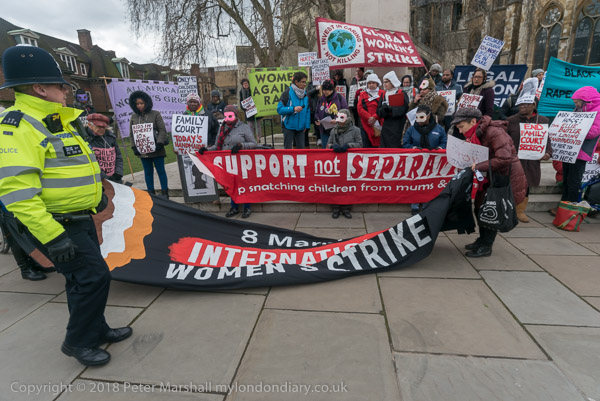
My Day began in Parliament Square, where Global Women’s Strike were staging a mock trial of the Family Courts. They say the courts fail families and remove children for adoption unnecessarily, mistaking poverty for neglect and failing to give support to victims of domestic abuse, and disabled mothers as required by the 1989 Children Act, and the Care Act 2014 . In Spain almost half of children needing taking into care are placed with kinship carers – mainly grandparents – while the figure for the UK is only 9%, less than one fifth as many.
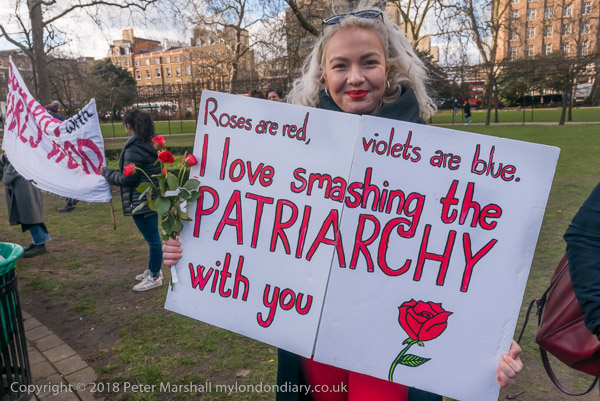
Next I went to Russell Square where women were taking part in the London Women’s Strike, refusing to do work either paid or unpaid, including housework and domestic work. There were speeches and singing and various events both in Russell Square and elsewhere in London supporting protests concerning women, three of which I attended.
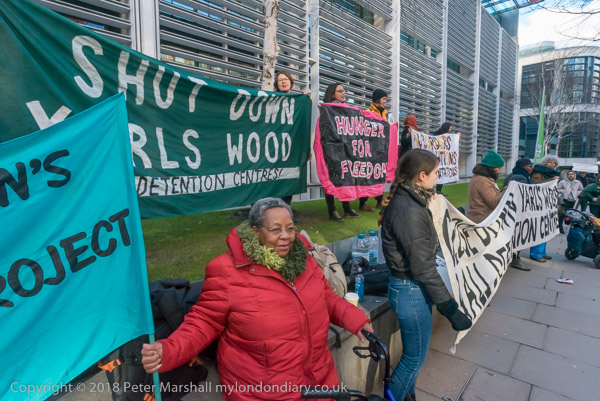
The first was at the Home Office, where protesters had come to show solidarity with the women detained in Yarl’s Wood, some of whom were on the 15th day of a hunger strike and general strike against their imprisonment and the conditions and treatment by the detention centre staff and the Home Office. The Home Office has so far responded to their demand for proper treatment by issuing public denials that the action is taking place and sending letters to the women taking part threatening them with accelerated detention.
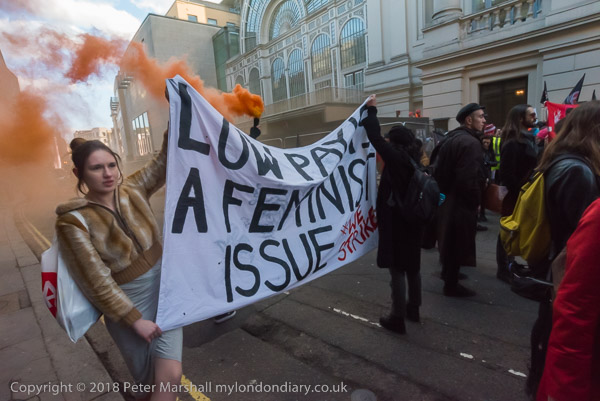
Next I met the CAIWU at Covent Garden, where a largish crowd from the London Women’s Strike had come to support the cleaners, mainly women, at the Royal Opera House, where several CAIWU members are bing victimised by contractor Kier for taking part in successful union action to get a living wage there.The larger crowd made the protest more impressive, but it took a whole series of almost daily actions there for some weeks to get justice.
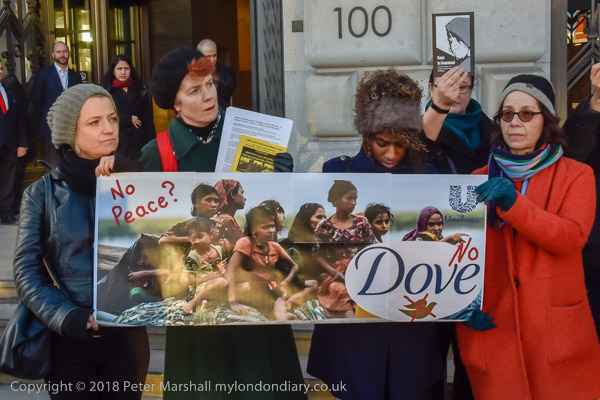
My final event for the day was at Unilever House and was again with Global Women’s Strike who are calling for Unilever to end their $667 million investment in Myanmar where the military government are committing systematic rape and other torture with total impunity as part of their genocide against the Rohingya people. Posters showed their actions in marked contrast to the image and advertising of Unilever’s Dove products, which claims that “UNILEVER aims to improve safety for women and girls in the communities where they operate.”
Although some of the women were going on to further events for the day, by the end of this I was exhausted and decided it was time to go home.
More at:
Family Courts put on Trial
London Women’s Strike
Solidarity with Yarl’s Wood
Reinstate the Royal Opera House 6
Unilever & Myanmar’s Rohingya genocide